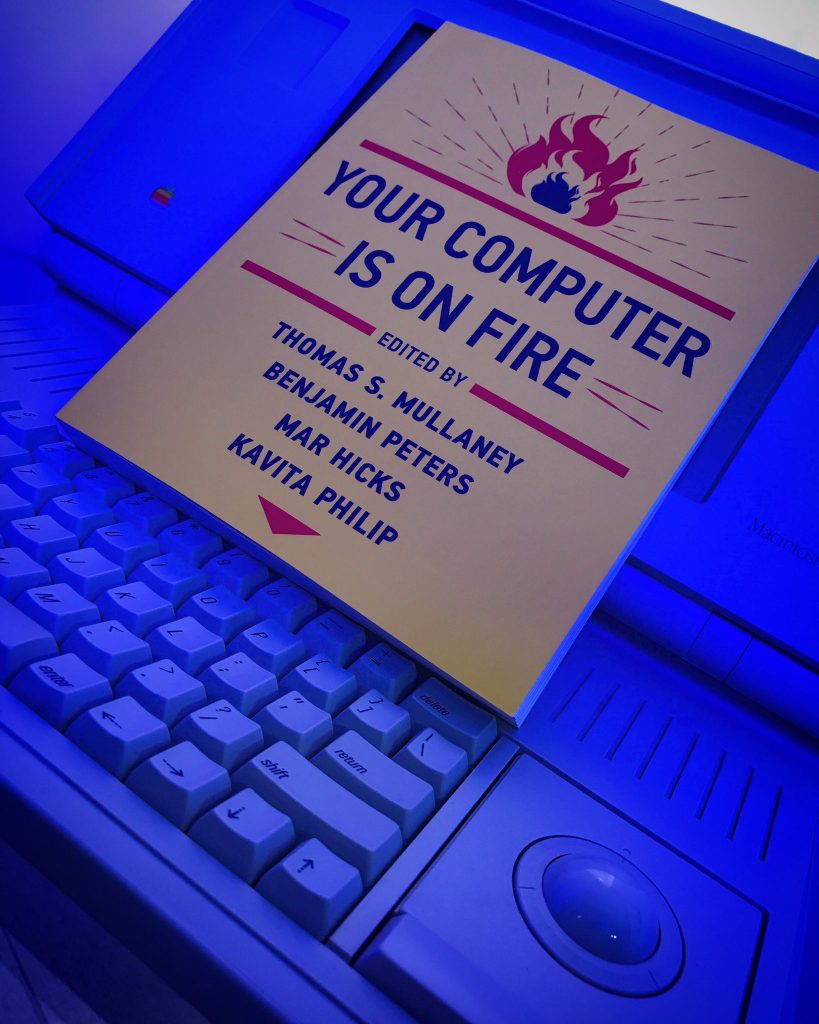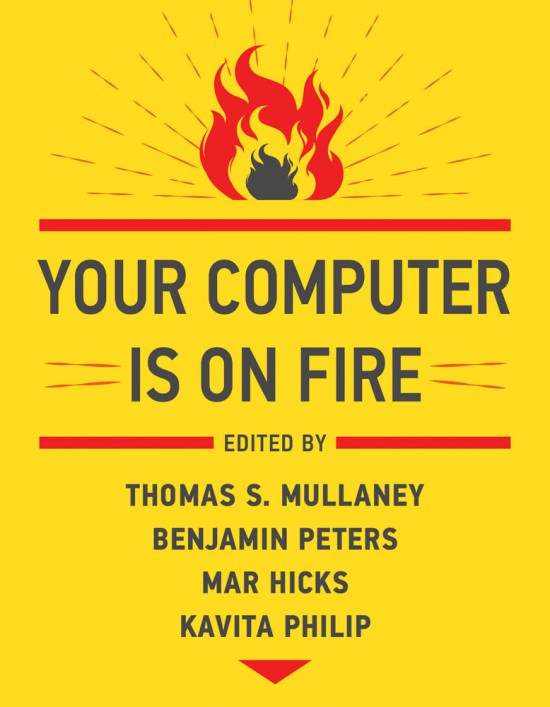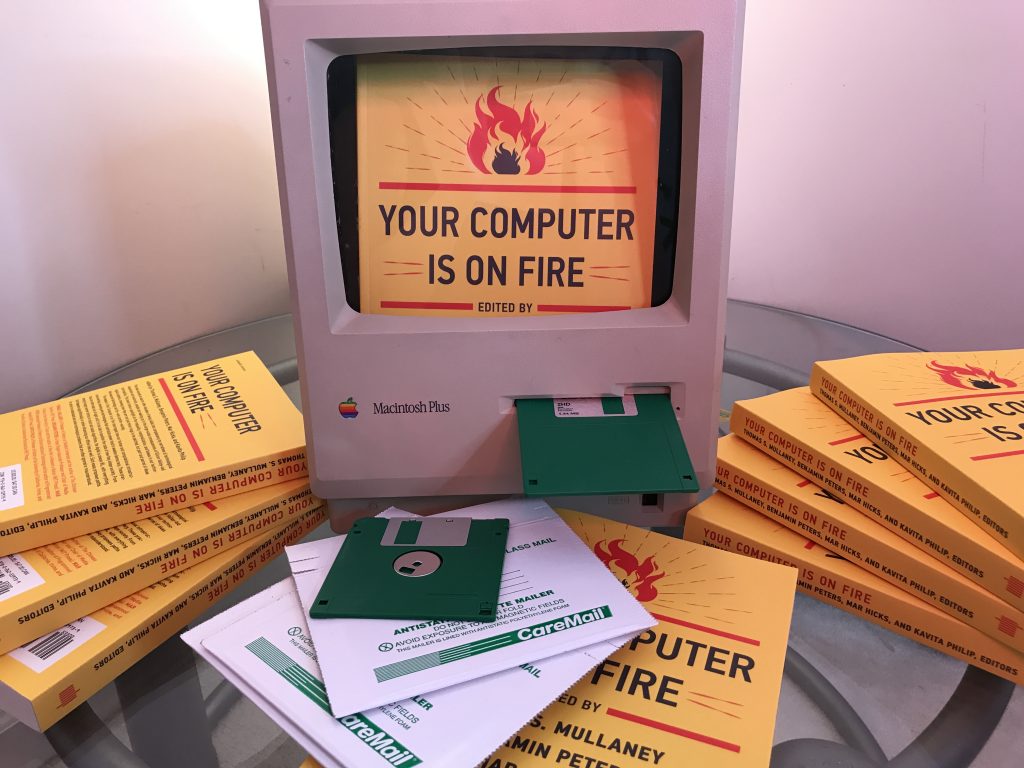Your Computer Is On Fire

I’m happy to announce that a project I’ve been working on for several years as a co-editor has just been released. It’s a book called Your Computer Is On Fire that collects some of the sharpest thinkers today working in the areas of history of technology, STS, information studies, and more to ask the question: how did we get into this mess, and how to we get out?
“The collection of impactful tech issues interrogated over the span of decades in this book makes it recommended reading for anyone interested in the impact of tech policy in businesses and governments, as well as people deploying AI or interested in the way people shape technology” writes Khari Johnson (VentureBeat). Tamara Kneese, writing for the LA Review of Books calls it, “the book tech critics and organizers have been waiting for.” New Scientist says: ‘Technology is so embedded in our lives that we can sometimes forget it is there at all. Your Computer is on Fire is a vital reminder not only of its presence, but that we urgently need to extinguish the problems associated with it.”

Each essay looks at a different aspect of our global, interconnected computing landscape, and the effects that our computing tools and infrastructures have on our political, economic, and social systems. With a special focus on labor and workers’ ability to fight back against unethical and overbearing tech, the book sounds an alarm about the dangers of uncritical techno-utopianism. It trains a spotlight on the inequality, marginalization, and biases in our technological systems, showing how they are not just minor bugs to be patched, but part and parcel of technologically deterministic ideas that assume technology can fix—and control—society. After decades of being lulled into complacency by narratives of technological neutrality, people are waking up to the large-scale consequences of Silicon Valley–led technophilia. The essays in Your Computer Is on Fire interrogate how our human and computational infrastructures overlap, showing why technologies that centralize power tend to weaken democracy. These practices are often kept out of sight until it is too late to question the costs of how they shape society. From energy-hungry server farms to racist and sexist algorithms, the digital is always IRL, with everything that happens algorithmically or online influencing our offline lives as well. Each essay proposes paths for action to understand and solve technological problems that are often ignored or misunderstood.
After decades of being lulled into complacency by narratives of technological neutrality, people are waking up to the large-scale consequences of Silicon Valley–led technophilia. The essays in Your Computer Is on Fire interrogate how our human and computational infrastructures overlap, showing why technologies that centralize power tend to weaken democracy. These practices are often kept out of sight until it is too late to question the costs of how they shape society. From energy-hungry server farms to racist and sexist algorithms, the digital is always IRL, with everything that happens algorithmically or online influencing our offline lives as well. Each essay proposes paths for action to understand and solve technological problems that are often ignored or misunderstood.
You can hear me talk about the book on the Tech Won’t Save Us podcast, or order the book through your library, your local indie bookstore, or the MIT Press website. You can read a review in the LA Review of Books:
“A primer in tech criticism and activism, Your Computer Is On Fire uses the underexamined past to better understand the present and shape the future. The four editors are historians of computing, and the contributors, a quarter of whom are women of color, represent varied academic fields and areas of expertise. The volume coalesces around their collective conviction that the tech world is in a state of emergency. The “fire” of the title, inherent from computing’s inception, has three interconnected meanings: the first is literal, in that computing technology runs hot and eats energy; the second refers to computing’s current crisis; and the third emphasizes fire’s ability to propagate. The fire threatens to destroy our digital worlds from within.”


I think the IT advisory firms are part of the problem. Gartner, for instance, sells research about information technology to thousands of companies.
Gartner’s Chiefs of Research? Nearly all men. In fact, women are not even allowed to apply. (The Chiefs are “chosen” by management.) By the way, women are upwards of 40% of the organization. But they are not deemed to be “top influencers” or “top performers” by Research management.